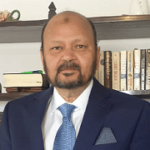Undoubtedly, the calendar year 2020 will remain ingrained in our memories for a lifetime — a year marked by a raging pandemic, environmental catastrophes, fifth generation warfare waged by our increasingly anti-Muslim, anti-Pakistani neighbour to the east, major economic challenges and ongoing opposition rallies. Which memories from this momentous year will future generations of Pakistan inherit?
When reflecting on 2020, our elected officials should remember that historically nations that invest in innovation during a crisis outperform their peers in recovery efforts and other areas. Emergencies create a sense of urgency that can engender collaborative effort; they can break through organisational silos, and overcome institutional inertia. New readings of the world could throw up possibilities of much-needed social and material change.
As with the rest of the world, Covid fatigue has also overwhelmed us — we are tired of social distancing, desperate to indulge in all those daily activities which pre-Covid we took so much for granted. However, as the numbers of those affected spiral, as the death toll mounts, there is a growing realisation of the need for caution. Unfortunately, clearly, not everyone is of that view. We have witnessed our politicians irresponsibly campaigning in Gilgit-Baltistan and elsewhere, and holding rallies — despite warnings and appeals from doctors and health experts — teeming with masses of the unmasked. So as we mourn the loss of the eight thousand plus victims of the virus, and take into account the rapidly mounting figures, we hope that our elected officials take the measures so desperately needed to protect the lives of our people, and that our politicians garner the sense and courage to act responsibly and rationally. And now, with the promise of vaccines on the anvil, we pray 2021 brings an end to this pandemic.
We also hope that our institutions will strengthen the firewalls guarding our economy — rendered increasingly shaky on account of cumulative reasons.
Led by waderas, sardars, Khans and funded by Pakistan’s enemies, the separatist voices weaken the country’s genuine progressive, patriotic and nationalist platforms.
And as global environmental crises continue to escalate, we should remember that environmental stewardship is an essential function of Islam, enshrined in both the Quran and the Hadith. We should be mindful that Islam conceives of a natural universe permeated with God’s grace and humanity. To man is given the responsibility of acknowledging and honouring God’s grace by preserving the vessels — the natural world’s elements — through which it flows.
That, however, is not the end of it.
Unfortunately, our country is also confronted by several external threats and an arch-rival hell-bent on weakening Pakistan’s federation. Usually, populist movements seek to create a “public,” i.e., a voluntary association of people who gather around an idea or cause with a positive, public purpose.
However, in Pakistan, the anti-everything stance is a form of ethnic nationalism that needs conspirators, villains, and enemies. Led by waderas, sardars, Khans and funded by Pakistan’s enemies, the separatist voices weaken the country’s genuine progressive, patriotic and nationalist platforms. In stark contrast, a progressive worldview summons citizens not to provincialism and parochial thinking, but to achieve broader national goals. We hope and pray that 2021 will bring people together with the goal of a strong, stable and modern Pakistan.
There will be no escape from a downward spiral and no healing of Pakistan without the downright rejection of the destructive forces unleashed by foreign-funded separatists. To create a new, more inclusive, civil, and humane society, we wish the New Year brings peace in all the provinces, cities, districts, and towns of the country.
And as we bid farewell to 2020, we must remind ourselves and all the talking heads on the rating-hungry digital media of the sagacious advice of Imam Ghazali: “Adopt a gentle tone when speaking, for verily the tone at times, has a greater impact than the speech.”




